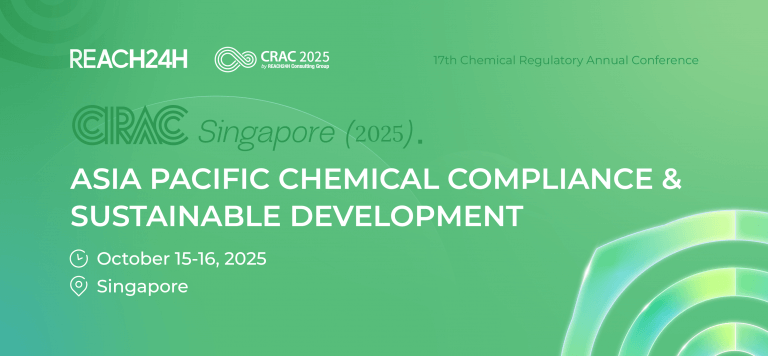Cleaning products contribute nearly $2.5 billion annually to U.S. imports. However, entering the U.S. market requires adherence to a complex regulatory framework. Therefore, for both household and industrial cleaning product importers, a deep understanding and diligent execution of the necessary compliance steps are crucial to avoiding costly delays and penalties. In the United States, cleaning products are not regulated by a single agency. Instead, a robust network of multiple federal agencies collaborates to oversee their compliance. The main regulatory bodies include:
U.S. Environmental Protection Agency (EPA)
The EPA is one of the core agencies for cleaning product regulation.
If a cleaning product claims to have "pesticidal" functions such as killing, inhibiting, disinfecting, or controlling pests (e.g., bacteria, fungi, viruses, rodents), it's considered a pesticide. Under the Federal Insecticide, Fungicide, and Rodenticide Act (FIFRA), such cleaning products must obtain EPA registration approval before being marketed. This includes submitting detailed toxicological data, efficacy test reports, and environmental impact assessments.
If a cleaning product only claims functions like stain removal or general cleaning, it's considered a general chemical. Under the Toxic Substances Control Act (TSCA), such cleaning products, as mixtures, require their individual components to confirm TSCA compliance. This involves checking if they are existing substances, meeting existing substance compliance requirements, and fulfilling new substance requirements. For imported cleaning products containing new substances, unless an exemption applies, importers must submit a Pre-manufacture Notice (PMN) to the EPA 90 days prior to import and receive approval.
Food and Drug Administration (FDA)
If a cleaning product is marketed for personal hygiene, such as shampoos or body washes, it falls under the FDA's definition of cosmetics. The FDA ensures the safety and effectiveness of these products through the Federal Food, Drug, and Cosmetic Act (FD&C Act).
U.S. Consumer Product Safety Commission (CPSC)
The CPSC's role is to protect the public from unreasonable risks of injury associated with consumer products.
For general household cleaning products, the CPSC regulates them under the Consumer Product Safety Act (CPSA) and the Federal Hazardous Substances Act (FHSA). This includes requiring manufacturers to provide clear hazard warnings, first-aid measures, and usage instructions on product labels, and the CPSC has the authority to recall unsafe products.
Occupational Safety and Health Administration (OSHA)
OSHA primarily focuses on workplace safety, but its regulation of cleaning products through the Hazard Communication Standard (HCS) also plays a significant role. This standard requires manufacturers and importers to provide workers with information about chemical hazards, including Safety Data Sheets (SDS) and labels, to ensure workers understand and manage potential occupational risks associated with cleaning products.
California's Unique Regulatory Landscape
It is worth noting that California, as the largest importing state in the U.S., stands out in cleaning product regulation. In addition to adhering to federal regulations, California, while boasting a huge consumer market, also implements stricter state-level management, such as the Safe Drinking Water and Toxic Enforcement Act (Proposition 65) and the Safer Consumer Products Act (California Cleaning Product Right to Know Act).
Under California Proposition 65, all products sold in California must adhere to two main requirements: 1. Prohibit the intentional discharge or release of listed substances into water sources or land; 2. If a product contains harmful substances at levels that trigger warning requirements, businesses must provide consumers with a "clear and reasonable warning" to allow consumers to decide whether to purchase the product after being informed about the chemicals it contains.
Under the California Cleaning Product Right to Know Act, cleaning product manufacturers must disclose in detail on product labels and company websites the intentionally added chemical ingredients, especially those on specific "designated lists" of hazardous substances, and non-functional ingredients present above certain thresholds. Additionally, the act requires providing a manufacturer's toll-free phone number and website link on the label to help consumers access more comprehensive ingredient information and relevant Safety Data Sheets.
EPA's Safer Choice Program
To meet these stringent regulatory requirements while also offering consumers more environmentally friendly and safer choices, the U.S. Environmental Protection Agency (EPA) has launched the "Safer Choice" program. This voluntary program aims to help consumers and institutions identify cleaning products that meet the EPA's strict human health and environmental standards. One of the core tools of this program is the "Safer Chemical Ingredients List" (SCIL), which includes chemicals assessed by the EPA and deemed safer than traditional chemical ingredients, categorized by their functional purpose.
Products that obtain Safer Choice certification should prioritize ingredients from the SCIL in their formulations and undergo rigorous EPA evaluation to ensure a balance between functionality, safety, and environmental friendliness, thereby reducing potential risks to human health and the environment.
Navigating the U.S. Cleaning Product Market: A Strategic Approach
The significant barriers to entry in the U.S. cleaning product market primarily stem from its complex, multi-tiered, multi-department regulatory system, as well as strict ingredient disclosure, burdensome data requirements, customized labeling and packaging regulations, and challenges in interpreting regulations due to language and cultural differences. Given this, REACH24H advises foreign companies planning to enter the U.S. cleaning product market to thoroughly understand relevant regulatory policies and compliance requirements to effectively avoid unnecessary risks of non-compliance. With its profound insight into complex regulatory frameworks, professional interdisciplinary background, extensive practical project experience, and ability to provide customized, efficient compliance solutions, the REACH24H team can offer comprehensive compliance consulting and support services to companies intending to import cleaning products into the United States:
Cleaning Product Compliance Consulting/Analysis Reports
Cleaning Product Registration/Filing/Notification
Cleaning Product Certification Consulting
Cleaning Product Label and Packaging Review
Other Customized Cleaning Product Services
Do you have specific cleaning products in mind that you're considering importing, or are you looking for more general advice on specific aspects of U.S. compliance? Please feel free to contact us at customer@reach24h.com.





